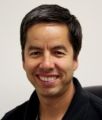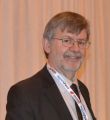FLOW AND GROW! – A workshop on HOW to respect ecosystem and cultural values, ensure food security and build water-resilient communities (Nov 29, 2016 in Kelowna)
Note to Reader:
On November 29th 2016, at the Capri Hotel in Kelowna, the Partnership for Water Sustainability in British Columbia and the Irrigation Industry Association of British Columbia (IIABC) will co-host the 4th in their “Annual Year-End Water Sustainability Workshop Series”.
Each year the two groups look ahead to anticipate necessary directions for water resource management in the local government and agricultural sectors. The purpose of these events is to start and inform conversations around ‘bold ideas’. A desired outcome is that audiences will be both energized and inspired to make a difference when they leave the room.

ONLINE REGISTRATION: Visit the IIABC website (and follow the links) https://www.irrigationbc.com
PROGRAM OVERVIEW: Download Flow and Grow
Water from a Global Perspective & Beyond
Bob McDonald:
Loved by audiences across Canada for making complex scientific issues understandable, meaningful, and fun, Bob McDonald is in high demand. A fixture in radio and television broadcasting for more than 30 years, he is currently the host of Quirks & Quarks–the award-winning science program that is heard by 500,000 people  each week. Bob McDonald has authored four bestselling science books.
each week. Bob McDonald has authored four bestselling science books.
“A global perspective reminds us of the limited availability of fresh water on the planet, a vital life sustaining resource that demands a raised level of consciousness and commitment,” says Bob McDonald.
Chief Aaron Sam:
 Passionate about protecting and taking care of wild salmon, Aaron Sam has been a practicing lawyer for almost 10 years. As elected Chief, he continues to advocate for sustainable use of lands and waters, for the present and future generations.
Passionate about protecting and taking care of wild salmon, Aaron Sam has been a practicing lawyer for almost 10 years. As elected Chief, he continues to advocate for sustainable use of lands and waters, for the present and future generations.
“The call for an inter-cultural and inter-generational approach to water security issues has never been more timely or pressing than now,” states Aaron Sam.
Sense of Place:
“The concept for FLOW AND GROW is both visionary and practical, so constructed to identify solutions regarding water security through a process of consensus, commitment and collaboration,” explains Eric Bonham, facilitator for Module A. He developed the  theme for the module and and connected the dots between Bob McDonald and Aaron Sam.
theme for the module and and connected the dots between Bob McDonald and Aaron Sam.
“Simply put, the unifying theme is ‘sense of place’. Whether discussing the economy or ecological challenges, the workshop findings will be of equal importance and applicability to other areas within the province and beyond.”
Four Modules:
“FLOW AND GROW is structured as four modules and is cascading – from high-level visioning to ground-level applications. Each module has a learning objective. Adaptation to a changing climate is a thread that runs through all the modules,” adds Kim Stephens, Partnership Executive Director.
 “Climate change, water security, population demand and food security issues will be discussed in grounded terms by a team of 11 expert inter-disciplinary presenters. Their objective is to seed a conversation that will ripple through time. Team members will share and reflect on their perspectives of what a balance of the economy, ecology and settlement in the Okanagan Valley (and beyond) might look like.”
“Climate change, water security, population demand and food security issues will be discussed in grounded terms by a team of 11 expert inter-disciplinary presenters. Their objective is to seed a conversation that will ripple through time. Team members will share and reflect on their perspectives of what a balance of the economy, ecology and settlement in the Okanagan Valley (and beyond) might look like.”
To Learn More:
Spirit & Science – An Inclusive Journey
“The duo of Bob McDonald and Chief Aaron Sam allows FLOW AND GROW to explore and build on the concept of ‘Blue Ecology’, a way of thinking introduced by Michael D. Blackstock in 2001. In a series of articles published in the BC Journal of Ecosystems and Management, his call for action was to re-examine climate change from a ‘water first’ angle,” continues Kim Stephens.
Blue Ecology:
“This concept emerged from interweaving two ways of knowing: 1) a First Nations spiritual and traditional ecological perspective; and 2) a Western science secular and ecological perspective. Michael Blackstock wrote that ‘Blue Ecology is a means to focus, with new watery eyes, on the arrived crisis of climate change’.”
“He saw as essential the acknowledgement of water’s central functional and spiritual roles in our world, and urged us to apply both respect and science-based understanding as we develop collaborative climate change mitigation strategies and instill this respect and understanding in younger generations.”



